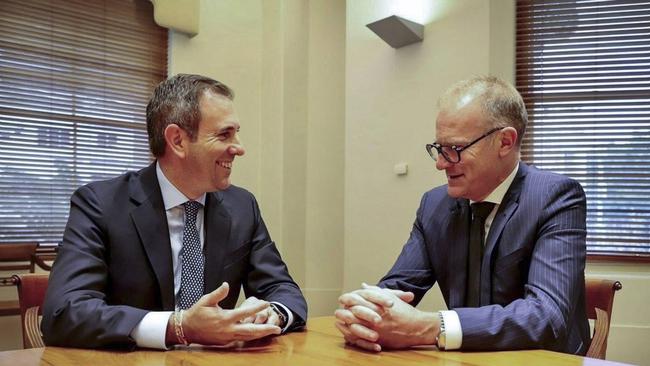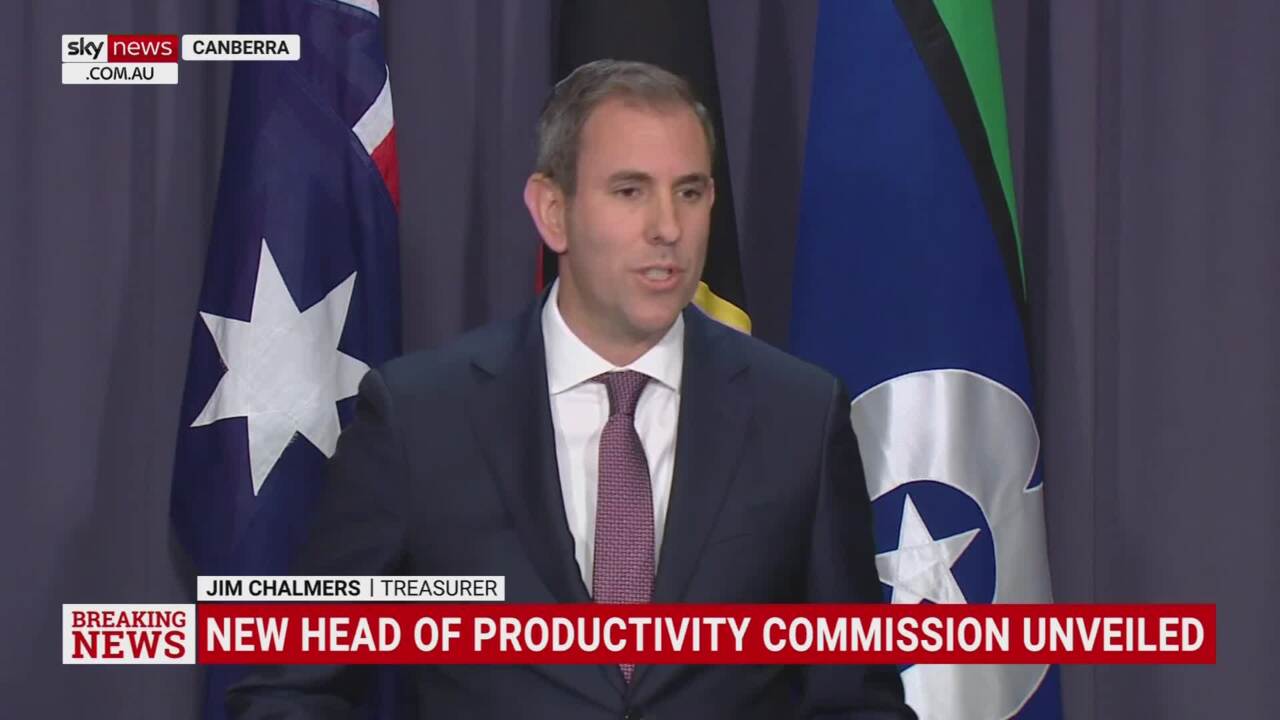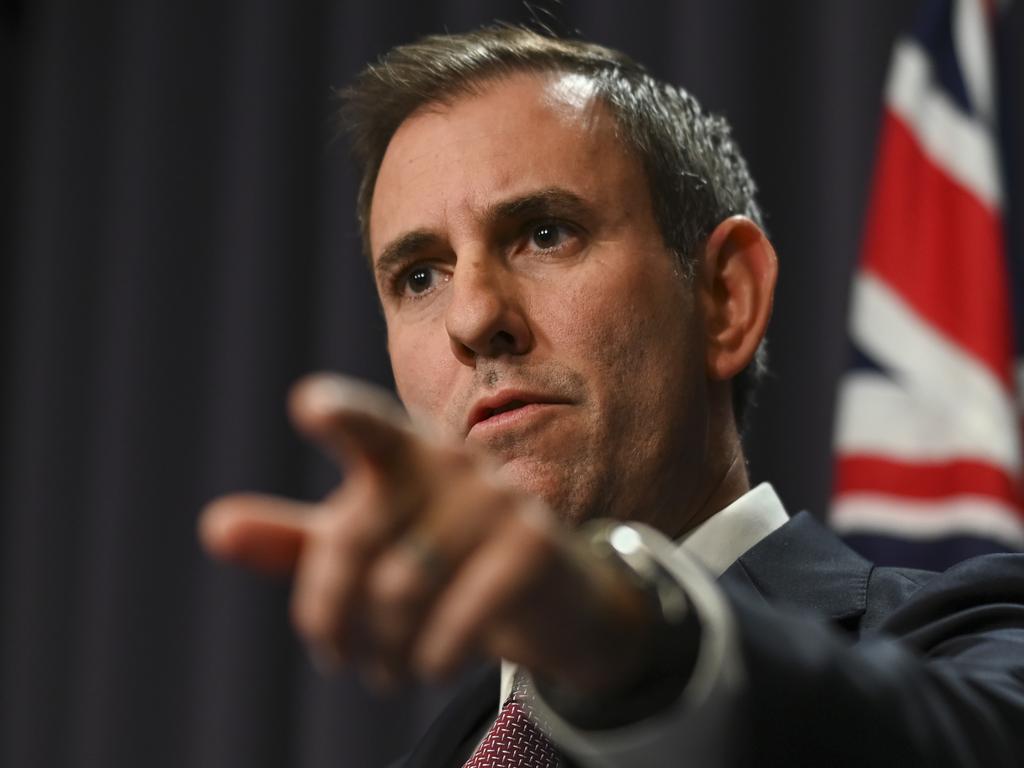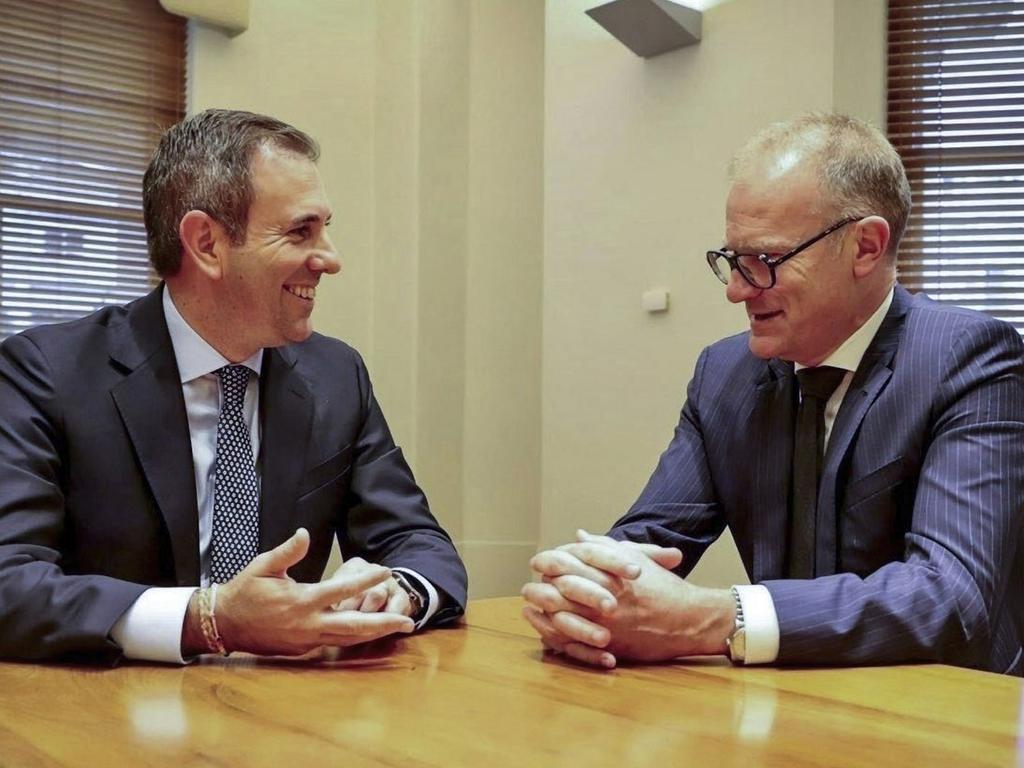New Productivity Commission chair Chris Barrett could lift Labor’s game
But the Treasurer’s appointment of his old boss to the role has attracted no end of criticism.

The attacks are, variously, that it is a job for one of the boys; the pair’s close ties plus Barrett’s long-time Labor connections mean he won’t offer frank and fearless advice; and ultimately the independence of the Productivity Commission will suffer. You’d think a political insider getting appointed to a plum government job was a new phenomenon.
Given the centrality of productivity improvements to maintaining and enhancing economic growth in the years ahead, the appointment is an important one. But it is also important that governments pay attention to the findings of the Productivity Commission, which is why having someone lead it who the Labor government will listen to matters. Barrett ticks that box in no uncertain terms.
There is nothing wrong with jobs for the boys (and girls) as long as such appointees are well qualified and add value.
There is little point in a well-resourced and well-credentialed Productivity Commission pumping out reports that don’t align with the values of the government of the day and are therefore likely to serve as little more than expensive and combustible paperweights. Barrett won’t preside over that sort of scenario.
Labor has shown growing hostility towards the Productivity Commission in recent years, believing the commission’s economic recommendations are at odds with the party’s ideological values. Remember, before the election last year Labor had been in power for only six of the past 26 years. The PC was founded in 1998 and the Coalition has appointed the lion’s share of commissioners. Which isn’t a criticism of those appointments; the Coalition wants commission chairs who complement its approach to government, just as Labor does.
Opposition Treasury spokesman Angus Taylor has expressed concerns about a former Labor staff member moving into the role, but outgoing chairman Michael Brennan is a former Liberal staffer and Labor, when in opposition, criticised his appointment on the grounds that his political connections should have excluded him from consideration. Both sets of criticism are off the mark.
Just as Brennan was prepared to oversee Productivity Commission findings that didn’t always suit the former Coalition government, I am sure Barrett is also capable of doing so. He just won’t do it in ways that don’t have a realistic chance of being listened to by a Labor government. Or he’ll do so when the disagreement is of paramount importance. Barrett will have a good feel for such nuance.

More important, just as Brennan was able to target Productivity Commission research towards ends that might be of interest to the former Coalition government, Barrett will do likewise for Labor in the coming years. That will give the commission a greater chance of being listened to, having an impact and fulfilling its goal of enhancing national productivity.
The obvious caveat is that what comes out of the commission can’t lose its analytical edge, but that seems unlikely. There are other commissioners (variously appointed) with whom Barrett will engage, as well as a professional staff capable of delivering findings reflective of the research, not the whims of their master (if I’m wrong and he does let partisanship get the better of him).
Since serving as Swan’s chief of staff more than 15 years ago, Barrett has gained a public policy masters from Princeton, served as Australian ambassador to the OECD and runs the economic division in the Victorian Department of Treasury as a deputy secretary.
If there are grounds for concern, they pertain to Barrett and this government having an ideological opposition to the sorts of policies mainstream economists believe are necessary to enhance productivity – for example, concerning industrial relations structures or tax reform. On that score the jury is still out.
But again, even if Barrett comes to the job with an ideological blind spot, once immersed in the Productivity Commission he is likely to be exposed to a weight of argument that could help evolve such views. If that happens, he is the sort of insider who would be listened to when challenging the government with new-found ideas.
It isn’t precisely analogous, but before winning the 1983 election Paul Keating wasn’t exactly an advocate for the sort of economic reforms he championed in government. But, following the win and after accessing the Campbell review, Keating became a convert and embarked on the most important economic reforms in our national history – reforms that continue to underpin our prosperity today.

Chalmers studied Keating’s leadership as part of his PhD dissertation, so he would be well aware of the value of changing one’s mind to suit circumstances.
Chalmers is on record saying he doesn’t want Australians to just work longer hours to lift productivity. Rather, he wants to see productivity improvements in areas such as energy transformation and via a better embrace of technology. In other words, educational improvements that capture innovation need to be accessible to all.
These sorts of buzz words mean little if they start and end as rhetorical flourishes. They mean a lot more, however, when policies are brought to the fore that deliver. The reforms announced by Education Minister Jason Clare last week are part of this process. Bear in mind, though, that what was released was just the interim report; there is a long way to go. Barrett taking over at the Productivity Commission could be another piece in the puzzle.
The Albanese government is in a hurry but it doesn’t want to rush to failure. It therefore is slowly and steadily seeking to adjust the resources at its disposal to support its plan for what Australia might look like at the end of its time in power. To ensure that moment doesn’t eventuate after this term or the next, it is laying out its plans more carefully than previous Labor administrations did, namely the Whitlam and Rudd governments, in the hope of becoming a long-term administration.
Which is why time and time again Anthony Albanese has sought to cast himself in the image of Bob Hawke.
Peter van Onselen is a professor of politics and public policy at the University of Western Australia and Griffith University.








There has been no small amount of criticism this week directed at Jim Chalmers for appointing his old boss, Chris Barrett, as the next chairman of the Productivity Commission. The Treasurer worked under Barrett when the latter was Wayne Swan’s chief of staff in the early years of the Rudd government.